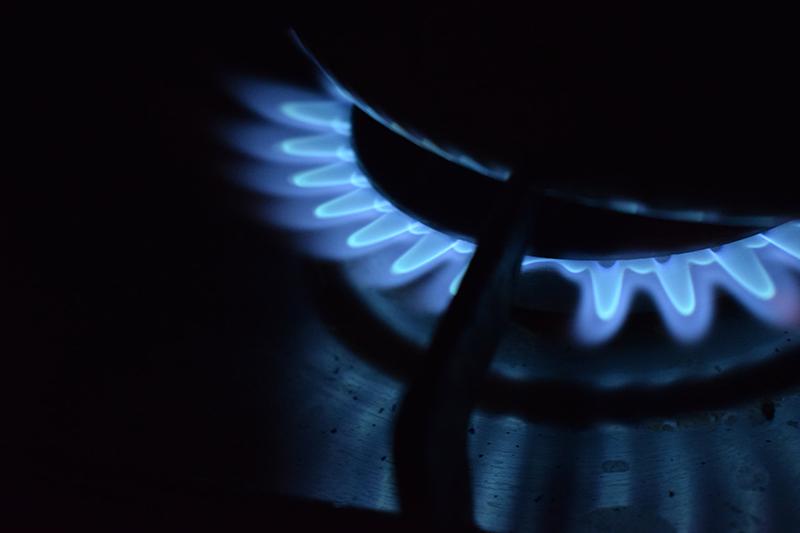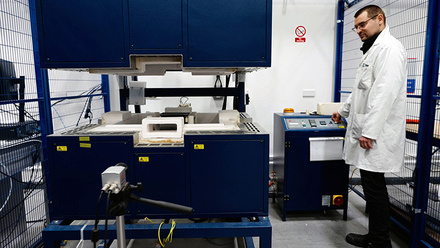Gas price crisis pushing industry to the brink?
Rising gas prices have taken centre stage in the mainstream media over the last week or so as the gas shortage and associated price rises take effect.

This is not a new problem. Gas use has been debated for many years in the UK and demonstrates some of the issues that the country has in balancing the renewables mix while pushing to decarbonise. Wind and solar power alone are incapable of generating enough power to account for 100% of demand year-round, even under the best climate conditions.
The UK recently closed a gas storage facility, faced a fire which destroyed the interconnector used to transfer electricity from France to Britain, and North Sea maintenance activities have resulted in reduced output. Globally, the gas market chaos, which has pushed prices 280% higher in Europe this year and over 100% up in the USA, is being blamed on a range of factors from low storage levels through carbon prices to lowered Russian supply.
Chris McDonald FIMMM, Chief Executive of the Materials Processing Institute, has been calling for the UK to become self-sufficient in energy production for several years. He says ‘The UK must invest in renewables, either offshore wind or nuclear, which can be used to produce hydrogen to enable the decarbonisation of the gas network.
‘Such a green energy policy will not only support the steel sector, but many other industries, by attracting investment – because what investors demand is a surety of energy supply.’
Professor Stuart Irvine FIMMM, Chair of the IOM3 Energy Materials Group, is also concerned at balance of supply saying, ‘The recent gas price increases have sent a shock wave through our energy providers and exposes serious weaknesses in our energy mix. Fossil fuel prices are subject to considerable price volatility and the recent events are no exception.’
‘Despite rapid growth in the UK renewable energy infrastructure we are still too dependent on gas for heating, industrial processes and electricity. Renewable energy (wind and solar) are now producing the cheapest electricity and prices will only come down. The Energy Materials Group represents a wide range of IOM3 interests across conventional power generation, renewable energy and nuclear. The latter is needed to contribute to low carbon energy generation and for the UK security of energy supply but has been neglected until recently. While long term planning for large nuclear power stations is essential, we must not ignore the contribution that can be made by SMRs (Small Modular Reactors) that could be brought on-stream sooner. The UK must invest more in non-fossil fuel energy to avoid the current crisis repeating itself in the future.’
Pennies, pounds and policy
At a consumer level, higher gas prices mean that each of us pays more to heat our homes, leaving less to spend on other goods and services. At an industry level the broader economy takes a hit.
A survey by Make UK has found that around two-thirds of British manufacturers are feeling the impact of energy price increases, with energy-intensive manufacturing the most affected.
In the plastics industry, global plastic makers have not only seen growing competition as more refiners shift from petrol and diesel to plastics, but now they are faced with a potential cut in profit margins as a result of higher feedstock costs.
Associate Professor at Teeside University, David Hughes MIMMM says, 'Increasing gas prices across Europe are causing a significant contraction in profit margins for the production of plastics. This, compounded by increased petrochemical capacity and steam cracking capacity (for the manufacture of PE & PP) in Asia, is contributing to plastic production in the UK becoming increasingly challenging.'
A British Plastics Federation spokesperson told IOM3, 'The increase in gas prices is unlikely to affect polymer production in the short term, although it will have a knock-on effect on all manufacturers if it has a sustained impact on energy prices. A survey of BPF members in August found many companies stating that numerous rising costs, such as energy and those related to raw materials shortages, were affecting the profitability of their businesses. There are also subsectors within the plastics industry that are more reliant on gas during the manufacturing process, such as rotational moulding, and these businesses will be more affected by the rising gas prices than others, although we have not yet heard reports that manufacturing will need to stop or become unprofitable.'
Other energy intensive industries, such as steel and cement are also feeling the pinch. UK Steel Director General, Gareth Stace comments, ‘These extortionate prices are forcing some UK steelmakers to suspend their operations during periods when the cost of energy is quoted in the thousands per megawatt hour…making it impossible to profitably make steel at certain times of the day and night.’
For miners and construction explosives supply is in question as prices rise. A huge impact on explosives prices was previously seen in 2008 when costs soared, and chemicals were diverted to fertilizer production.
Many of our industries are being impacted by the price hikes and the true costs of this challenge may be more than financial. Perhaps it is too early to tell what the effects will be. But it is clear that UK industry needs more than simply low prices, it needs predictable future costs and a low-carbon strategy that is followed through as part of an integrated energy policy.







